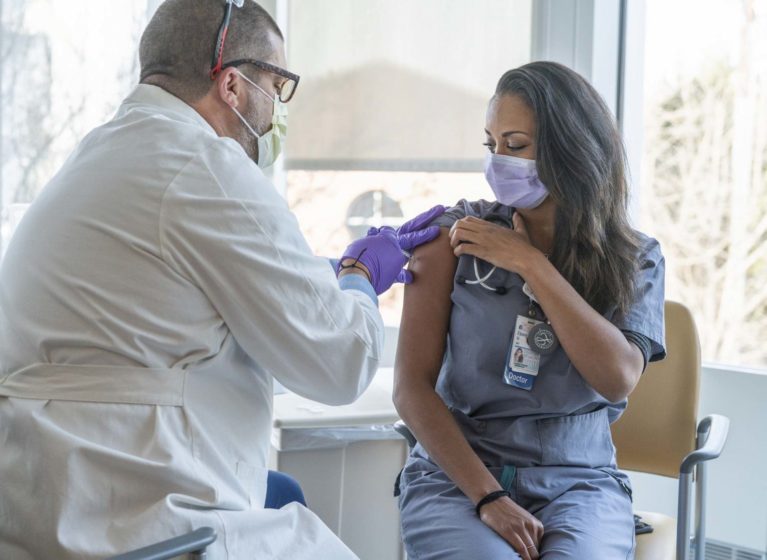A new study of UVA Health employees has shed light on the rise and fall of COVID-19 antibodies over time.
School of Medicine researchers Behnam Keshavarz, PhD, and Jeffrey Wilson, MD, PhD, and their colleagues tracked post-vaccination antibody levels in more than 200 UVA employees over the span of 10 months. Of those employees, 114 received Pfizer’s vaccine and 114 received Moderna’s.
Antibodies from Pfizer's vaccine rose more slowly and declined more quickly than those generated by Moderna's vaccine, the researchers found. After six months, Pfizer vaccine recipients had antibody levels lower than those seen in both the Moderna recipients and in patients who had been hospitalized with severe COVID-19 six months previously. (Patients who suffer severe COVID-19 are thought to generate more antibodies than people who recover from mild cases.)
The differences in the antibody levels generated by the mRNA vaccines might be explained, the researchers say, by the modest differences in their formulations and the amount of mRNA they contain. Another factor could be the time between the doses the recipients' received.
It’s important to remember that antibody levels naturally decline, whether after vaccination or illness. Thankfully, the immune system remembers how to make the necessary antibodies when they're needed again. As such, antibody levels are but one relatively crude metric to assess vaccine effectiveness.
Time has already told the true story: These vaccines have been tremendously effective at preventing serious illness and death, even though they were developed for a version of the virus that is quite different than those widely circulating today.
Truly, a tremendous accomplishment for science.
